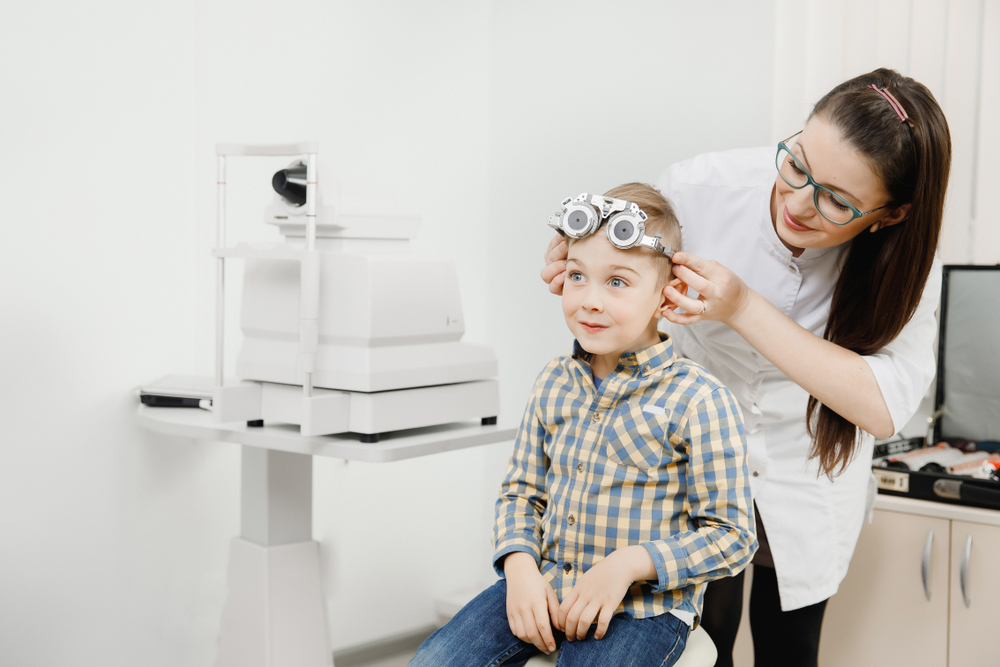
When most people think of vision, they focus on clarity—how well we see objects in the distance or up close. However, vision encompasses much more than clarity. It plays a critical role in how we process, interpret, and respond to the world around us. This is where neuro-cognitive optometry comes in, bridging the gap between eye health and brain function. At Riverdell Vision, we believe in providing holistic care that considers not just your eyes but how your vision integrates with your overall well-being.
What is Neuro-Cognitive Optometry?
Neuro-cognitive optometry focuses on how the brain and eyes work together to process visual information. Unlike traditional optometry, which primarily addresses issues like nearsightedness or farsightedness, neuro-cognitive optometry evaluates and treats the functional aspects of vision.
This specialty assesses how vision affects cognitive abilities, such as memory, attention, and problem-solving, as well as behavioral aspects like coordination and focus. The goal is to optimize how the brain processes visual input to support daily tasks, learning, and overall behavior.
The Vision-Learning Connection
For children and adults alike, vision is a vital tool for learning. Roughly 80% of the information we absorb comes through our eyes, which means even minor vision challenges can significantly affect academic and professional performance. Common issues like poor eye tracking, difficulty focusing, or inadequate depth perception can create barriers to effective learning.
Signs that Vision May Be Impacting Learning:
Struggling to read or write for extended periods
Skipping lines while reading
Difficulty understanding visual instructions
Challenges with hand-eye coordination
Headaches or eye strain after visual tasks
Behavioral Implications of Vision Problems
Beyond academics, vision problems can affect behavior. For instance, a child with undiagnosed visual processing issues may appear inattentive, fidgety, or frustrated, often leading to misdiagnoses of conditions like ADHD. Similarly, adults may experience difficulties with multitasking, decision-making, or spatial awareness, impacting their daily lives and relationships. By addressing the root cause of these challenges, neuro-cognitive optometry offers a pathway to improved behavior and performance.
How Neuro-Cognitive Optometry Can Help
Neuro-cognitive optometry uses advanced diagnostic tools and therapies to evaluate and treat vision-related cognitive and behavioral issues. Treatment plans are customized and may include:
Vision Therapy: A structured program to strengthen visual skills, such as eye coordination and focus.
Specialized Lenses: These may include prism lenses or filters to aid visual processing.
Neuro-Visual Rehabilitation: Designed for individuals recovering from neurological conditions, such as concussions or strokes.
Who Can Benefit from Neuro-Cognitive Optometry?
This field of optometry is especially beneficial for:
Children with Learning Difficulties: Helping them overcome vision-based barriers to academic success.
Adults with Workplace Challenges: Enhancing productivity and reducing eye strain.
Patients Recovering from Neurological Events: Supporting recovery after a traumatic brain injury or stroke.
Athletes: Improving hand-eye coordination and reaction times.
A Vision for Success at Riverdell Vision
We are committed to empowering our patients through innovative care. Neuro-cognitive optometry allows us to uncover hidden vision challenges that may be holding you or your child back, offering tailored solutions that lead to meaningful improvements in learning, behavior, and quality of life.
If you suspect that vision problems are affecting your or your child’s daily activities, schedule a consultation with Riverdell Vision to learn more about neuro-cognitive optometry and how it can help transform your life. Visit our office in Oradell, New Jersey, or call (201) 268-7566 to book an appointment today.



